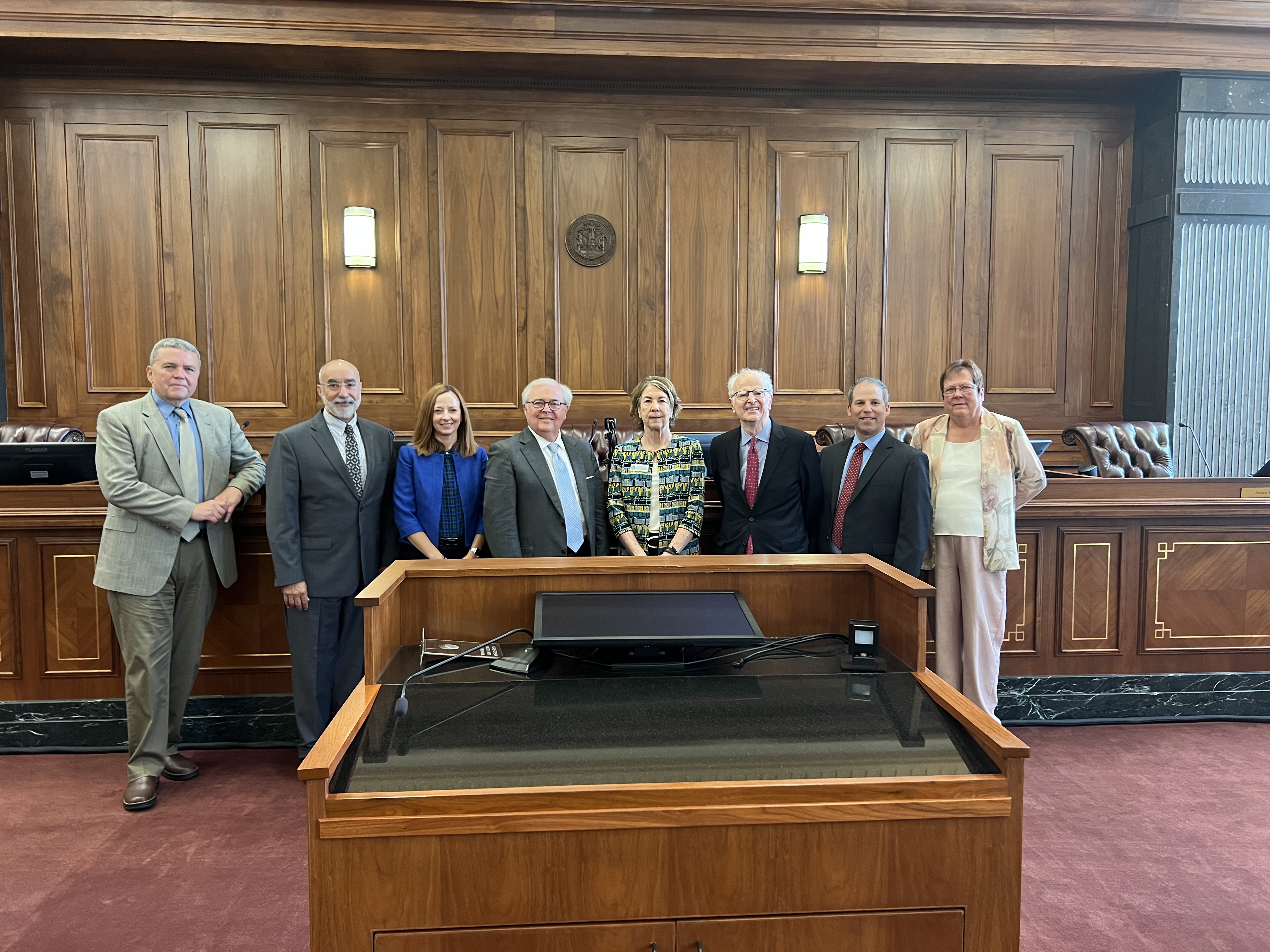SJI received 16 grant applications requesting a total of $2,321,097 for the 3rd quarter of FY 2023. The Board met on June 5, 2023, at the Wyoming Supreme Court to make decisions on those applications.
During its meeting, the Board awarded 6 Strategic Initiatives Grants: the National Center for State Courts (NCSC) to develop guidelines for the ethnical and evidence-based use of Artificial Intelligence (AI) technologies in the state courts, and an AI impact assessment tool; the NCSC to develop, pilot, and disseminate a new strategic planning framework and interactive web application tool that courts can use to address key areas of vulnerability; the National Council of Juvenile and Family Court Judges (NCJFCJ) for Phase II of an Initiative to continue to assist state court judges understand and address the needs of military families in the juvenile and family court system; the Robert F. Kennedy National Resource Center for Juvenile Justice to conduct a Probation and Youth Justice System Review Project in three selected jurisdictions and implement the recommendations from the analysis and review; the NCSC, in coordination with the Conference of Chief Justices and Conference of State Court Administrators for Phase II of the Blueprint for Racial Justice Initiative; and the National Association of Women Judges (NAWJ) to partner with NCJFCJ to produce podcasts for judges on best practices in child abuse and neglect cases.
Nine (9) Technical Assistance Grant applications were awarded: the Hamilton County, Tennessee, Court to partner with the Judicial Innovation Fellowship (JIF) program at the Institute of Technology, Law, and Policy at Georgetown University Law Center to audit and improve how the court and information technology departments across the county share data to better understand court user experiences across the civil and criminal justice systems; the Kansas Judiciary to partner with the JIF program to assess the filing needs of self-represented litigants in Kansas; the NCSC, in collaboration with the CCJ/COSCA Midwest Region, to focus on the issue of “legal deserts” in states where there are areas with few or no lawyers; the Ventura County, California, Superior Court to support a new strategic planning process; the 16th Judicial Circuit of Michigan to develop and strategic plan and priorities for improving access to justice; the Maine Administrative Office of the Courts to assess the organization and operations of the AOC; the Oregon Judicial Department to create a four-year strategic plan; the Kansas Supreme Court to review and update the vision, mission, and strategic goals set forth in the strategic plan; and the Delaware Court of Common Pleas for a caseflow management project.
One (1) Curriculum Adaptation and Training Grant to the National Association of State Judicial Educators (NASJE) to support educational sessions during the 2023 NASJE annual meeting.




